Best Brain Health Exercises to Improve Cognitive Performance
Is Brain fog or memory loss impacting your life in a growing or worrisome way? Alzheimer’s and dementia are most frequent in 65+ men but cognitive issues like brain fog and forgetfulness are getting more are more frequently seen in younger men. These brain health and memory issues could be from Andropause.
What are the best brain health exercises?
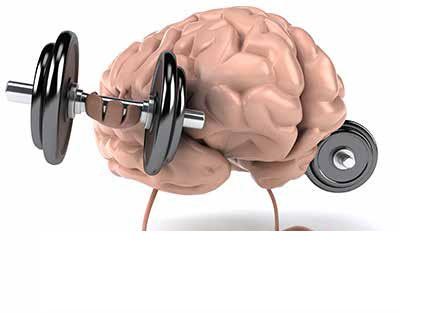
Exercise has always been seen as one of the key pillars to keep the body fresh and mind sharp and healthy as we age. But what type of exercise is best? Are they all the same?
Researchers examined the results of brain health on rats after running them through varied exercise programs. According to the researchers at the University of Jyvaska in Finland, below are the best brain health exercises to do.
- Running
- Weight Lifting
- High Intensity Interval Training (HIIT)
These three brain health exercises were identified and tracked across three groups of rats for a seven week period. The researchers injected the rats’ brains with a fluid that allowed them to track activity in the hippocampus of the rats. This activity identified the development of new brain cells anywhere in the brain but focused on the hippocampus because this is the area of the brain associated and used for learning and memory. The researchers hypothesized that whichever exercise stimulated new brain cell creation for use in learning or memory would help measure that exercise’s ability to stimulate brain growth, development and regeneration.
Brain Health Exercises Experiment Activities
Running: rats jogged on wheels in their cages
Weight Lifting: rats climbed walls with weights attached to their tails
HIIT: rats were placed on treadmills and forced to sprint/keep up at varying speeds and intervals
 Results
Results
Running was the winner!! The rats jogging on a where showed more neurogenesis than the other groups of rats. The HIIT rats experienced some improvement, however, the weight trained rats showed no improvement. The Finnish scientist concluded that “in order to promote [adult hippocampal neurogenesis] maximally, exercise should be aerobic and sustained.”
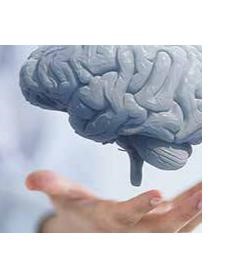 Maintaining a healthy brain healthy provides many other physical benefits. Mindful meditation has shown to reduce stress, heart rate and reduce inflammation in the body.
Maintaining a healthy brain healthy provides many other physical benefits. Mindful meditation has shown to reduce stress, heart rate and reduce inflammation in the body.
Testosterone helps regulate cortisone, which is a stress hormone, and affects the efficiency of our brain’s neurotransmitters. When men suffer from decreased testosterone levels they lose some ability to effectively regulate cortisol levels, which can cause neurotransmitters malfunction and lapses in memory. This is one of the reasons why cognitive issues are highly correlated with decreasing testosterone levels and you see higher incidence of cognitive impairment in men than you do in women.
 Testosterone Therapy to Improve and Maintain Brain Health
Testosterone Therapy to Improve and Maintain Brain Health
If these symptoms, cognitive issues, brain fog or memory issues are creeping up on you do not wait too long to start doing something about it. If they are affecting you, one potential solution is through testosterone and hormone replacement therapy. Contact Hormone Therapeutics and talk to our experts and find out if we can help you.
Hormone Therapeutics aims to help people looking to improve and optimize their health through natural means or through the guidance of our physicians.
Don’t miss out our free weekly tips and news on Low T, hormone balancing, healthy living, nutrition and a lot more.
Want more?

Sign up today and Get our ebook, ‘Naturally Increase Your Testosterone Levels’ absolutely FREE.
Best Brain Health Exercises to Improve Cognitive Performance
Saleamp Design November 29th, 2016
Posted In: Health & Wellness
Tags: brain fog, brain health, brain health exercises, cognitive, cortisol, exercises, impairment, inflammation, meditation, memory, memory loss, neurogenesis, neurotransmitters, stress, TBI, testosterone therapy, traumatic brain injury
Key Brain Health Nutrients to Keep an Aging Brain Sharp
Diet is one of the most influential components to maintaining proper brain health as we age, and to help maintain memory and cognitive function, it is important to take brain health nutrients to fight aging. Protect your brain by consuming these healthy nutrients.
 Brain Health Nutrients #1: Magnesium
Brain Health Nutrients #1: Magnesium
Magnesium decline in the body is believed to play an important role in cognitive decline, memory loss and early onset dementia. Taking supplemental magnesium and eating magnesium rich foods will help magnesium related cognitive decline. Magnesium rich foods includes: chard, spinach, pumpkin seeds, yogurt, almonds, black beans, avocados, figs, dark chocolate and bananas.
 Brain Health Nutrients #2: Omega-3 Fatty Acids
Brain Health Nutrients #2: Omega-3 Fatty Acids
Fish rich in Omega-3s are great for heart health but also help maintain cognitive skills. One study provided mice Omega-3 polyunsaturated fatty acids which showed cognitive improvement as they aged showing better object recognition memory, spatial and localized memory, and aversive response retention. Great fish options include: Salmon, Mackerel and Tuna.
 Brain Health Nutrients #3: Cocoa Flavanols
Brain Health Nutrients #3: Cocoa Flavanols
A 2014 study of the impact of high cocoa flavanol foods reported enhanced DG function (Dentate Gyrus) after three months of consumption. Dentate Gyrus is a part of the hippocampal formation in the brain often associated with cognitive aging and linked to memory. The flavanols are found naturally in cocoa and more present in rich dark chocolate than milk chocolate.
 Brain Health Nutrients #4: Cruciferous Vegetables
Brain Health Nutrients #4: Cruciferous Vegetables
Fruits, whole grains and vegetables have been identified by the National Institute on Aging as beneficial in delaying cognitive decline and other chronic diseases like type 2 diabetes and heart disease. Dark green, leafy, cruciferous vegetables like spinach and broccoli were found to help the most. The Mediterranean diet was also shown to be a better diet for maintaining cognitive ability v. a western diet. Staples of the Mediterranean diet include: vegetables, beans, fish, olive oil, some alcohol and small amounts of dairy, meat, and saturated fats.
 Brain Health Nutrients #5: Green Tea
Brain Health Nutrients #5: Green Tea
Bottom line . . . drink more green tea because it has so many health benefits. A study at the University of Basel found green tea to enhance memory and thinking. Those in the study performed better on memory tasks and tests and an MRI identified improved connectivity from the brain’s frontal cortex and parietal. This study showed that consuming green tea improved the brain’s immediate synaptic plasticity.
 Brain Health Nutrients #6: Nuts
Brain Health Nutrients #6: Nuts
Nuts are similar to fish in being rich in Omaga-3s. Walnuts have shown to be the most effective in this area. Another research study showed a diet fortified with walnuts, Vitamin E, folate, antioxidants and melatonin helped adults improve performance across a number of cognitive tests.
 Brain Health Nutrients #7: Blueberries
Brain Health Nutrients #7: Blueberries
Blueberries have antioxidant, anti-inflammatory and memory boosting properties. Blueberries contain anthocyanins which help increase neuron signal in memory. Participants in a study on blueberry juice saw improved word list memory, improved pairing and matching skills and also saw lowered rates of glucose and depression.
Key Brain Health Nutrients to Keep an Aging Brain Sharp
Saleamp Design November 22nd, 2016
Posted In: Testosterone Therapy
Tags: blueberries, brain health nutrients, brain performance, cocoa flavanols, cognitive decline, cruciferous vegetables, green tea, magnesium, memory, memory loss, nuts, Omega-3 fatty acids
Is B-12 Deficiency Causing You a Physical and Mental Decline?
Approximately 20 million Americans suffer from Alzheimer’s, dementia, or have a family member who does and diet can help stave off these conditions. Vitamin B-12 deficiency symptoms are often misdiagnosed because the symptoms can develop, either quickly or over time, and the symptoms can be similar to other complex issues (including Low T).
Is B-12 Deficiency Causing You a Physical and Mental Decline?
Saleamp Design February 16th, 2015
Posted In: Health & Wellness
Tags: anemia, b deficiency, b-12, b12, b12 deficiency, cognitive issues, deficiency, fatigue, health, jaundice, low t, low testosterone, memory loss, numbness, paranoia, swollen tongue, testosterone, tired, vitamin b-12, vitamin b12, vitamin deficiency


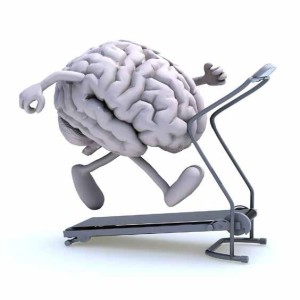 Results
Results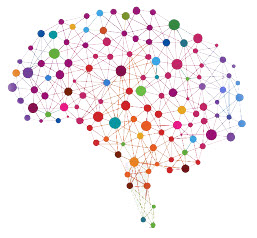 Testosterone Therapy to Improve and Maintain Brain Health
Testosterone Therapy to Improve and Maintain Brain Health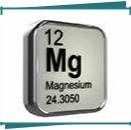 Brain Health Nutrients #1: Magnesium
Brain Health Nutrients #1: Magnesium Brain Health Nutrients #2: Omega-3 Fatty Acids
Brain Health Nutrients #2: Omega-3 Fatty Acids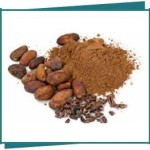 Brain Health Nutrients #3: Cocoa Flavanols
Brain Health Nutrients #3: Cocoa Flavanols Brain Health Nutrients #4: Cruciferous Vegetables
Brain Health Nutrients #4: Cruciferous Vegetables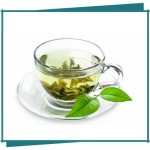 Brain Health Nutrients #5: Green Tea
Brain Health Nutrients #5: Green Tea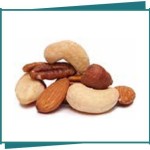 Brain Health Nutrients #6: Nuts
Brain Health Nutrients #6: Nuts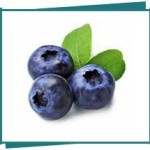 Brain Health Nutrients #7: Blueberries
Brain Health Nutrients #7: Blueberries